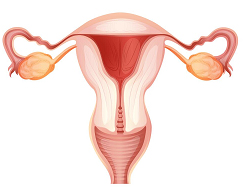Assisted Reproductive Technology: Parliamentary Panel Suggests a uniform minimum age criteria of above 21 years
Union Health Ministry is expected to go by the recommendations its Parliamentary Standing Committee’s Report on the Assisted Reproductive Technology (Regulation) Bill 2020. The Panel recommended a uniform minimum age criteria of above 21 years for both women and men for availing ART services. The proposed law provides for the regulation and supervision of the assisted reproductive technology clinics and the assisted reproductive technology banks, prevention of misuse, safe and ethical practice of assisted reproductive technology services. Currently clinics in India offer nearly all the ART services — gamete donation, intrauterine insemination (IUI), in-vitro fertilisation (IVF), intracytoplasmic sperm injection (ICSI), pre-implantation genetic testing (PGT), and gestational surrogacy.

The Bill was introduced in Lok Sabha in October 2020 and it was referred to the Standing Committee on Health and Family Welfare for examination. The Committee, headed by Ram Gopal Yadav tabled its report in Parliament in the budget session that concluded last week.
The Committee recommended that minimum age for a woman who wants to avail of the services of an ART clinic or bank should be "above 21" and not "above the legal age of marriage" (which is 18 years) as used in the definition of a "eligible woman" in the Bill. The committee said the specific age of 21 years should be used in place of "legal age of marriage" in the clause where it is stated that "the clinics shall apply the ART services to women and men above the legal age of marriage and below the age of 50 years and 55 years for women and men respectively."
The reasoning to settle for 21 years for a woman is also cited to ensure their safety. The report records that one stakeholder has informed the committee that the complications of IVF (Ovarian hyperstimulation syndrome, OHSS) are higher in younger woman.
Given the Indian family structure, social milieu and norms, it will not be very easy to accept a child whose parents are together but not legally married, noted the 129-page Report. The Committee in its report added that keeping the best interest of the child born through ART services and other parentage issues in case of their separation, it would not be appropriate to allow live-in couples and same sex couples to avail the facility of ART.
“The rights of people in same sex relationship and live-in relationships frequently keep getting redefined, however, the ART Bill endorsed the recommendations of Select Committee on Surrogacy (Regulation) Bill 2019, wherein the definition of “couple” has been retained and live-in couples and same sex couples have been excluded from availing surrogacy services,” the Committee said in its report.
In its observation, the Committee expressed its anguish to find that at present there are only six IVF (in vitro fertilisation) clinics in the government sector, namely the All India Institute of Medical Sciences; Lady Hardinge Hospital; Postgraduate Institute of Medical Education and Research, Chandigarh; King George’s Medical University, Lucknow; Army Hospitals in Delhi and Pune, while the remaining thousands of IVF centres were in the private sector.
“The Committee, therefore, recommends that the Government should ensure that each medical college or premier Government Hospital/ Institute must have IVF/ART facilities so as to enable the common poor masses to avail the services of ART,” it said.
Stating the India had become one of the major centres for ART, the Committee noted that “there are only guidelines of ART, and no law still exists.’’
The Committee in its report has suggested that legislation on ART services is the need of the hour to oversee and ensure that practices like the commercialisation of gametes, foetal reduction, multiple implantations by the rich, and sex-selection, are prohibited.
The Panel strongly recommended a monitoring mechanism under the overall guidance of the National Board has to be set up to prohibit unbridled commercialization of the ART services.
